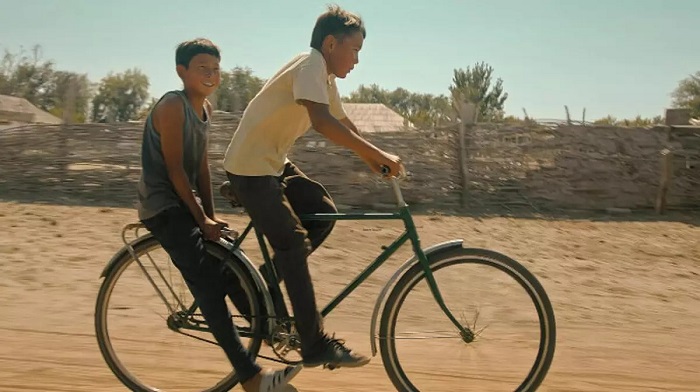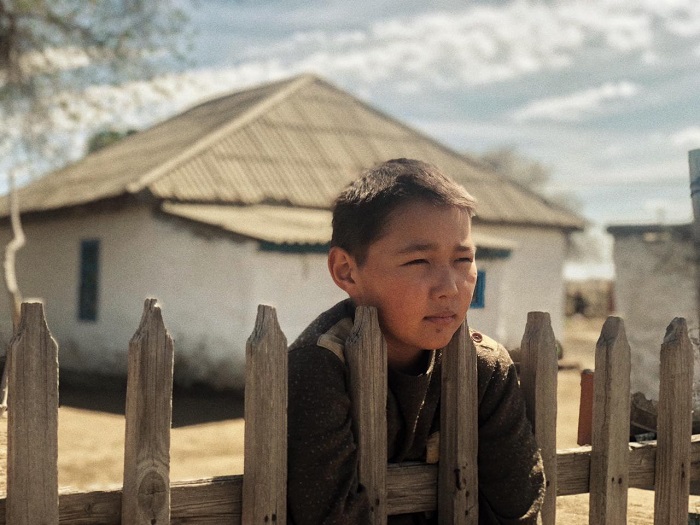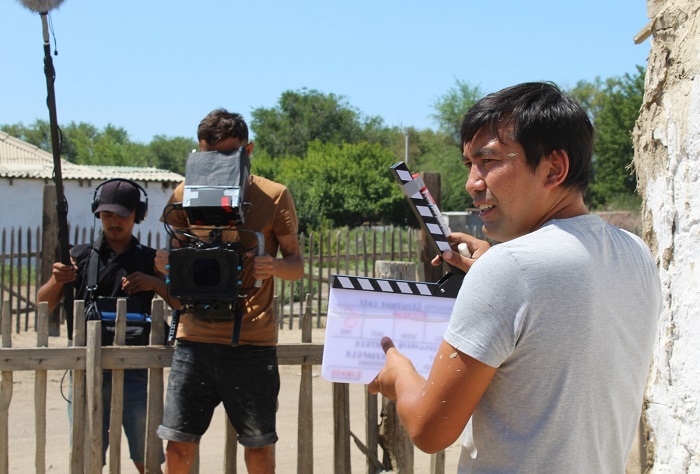Anton Genza
A “Tulpar” is a figure from the mythology of the Turkic peoples that is similar to our understanding and form of Pegasus in Greek mythology. It embodies not only speed but also elegance and cultural significance. The Tulpar also adorns the coat of arms of Kazakhstan and stands for two things for the prestigious Kazakh film prize. This year, it went to a film that embodies old tradition and heartfelt emotion.
 Kazakh film on the international stage
Kazakh film on the international stage
The Kazakh film “Bauryna Salu” (Бауырына салу) won this year’s “Tulpar” film award in the category “best film” and thus prevailed against 59 competitors. The film prize was established by the National Film Academy of Kazakhstan in 2016 and, after a long break due to the pandemic, was awarded for the fourth time this year.
Last year’s successful film premiere at the San Sebastian Film Festival in Spain was followed by wins at several other film festivals, including the Russian “Duh Ognja” for best international film and the Fajr International Film Festival in Iran.
Following the international recognition, Kazakhstan is now entering the film into the race for Best International Film at the 2025 Oscars, according to a September 23 statement from the press office of the State Center for the Support of Kazakh Cinema. So far, the film “Mongol” by Sergei Bodrov was the biggest Kazakh success at the Oscars, even if only nominated, but the Kazakh film industry has not yet been able to claim a prize of this magnitude.
 Thrown into the harsh reality at the age of 12
Thrown into the harsh reality at the age of 12
The film portrays Ersultan, who is given away from home by the ancient nomadic tradition of “Bauryna Salu” to be raised by relatives. However, after his grandmother dies at the age of 12, he returns to his parents. With the proceeds he has saved through hard work in the salt fields, he seeks out the settlement of his mother and father, who he misses extremely, although only vaguely remembered. The adolescent Ersultan seeks to connect and build a relationship with his parents, who are now complete strangers to him.
Far from any parental love, the relationship with his father is particularly difficult. For his parents, who live under impoverished circumstances, Ersultan is just another mouth to feed. Struggling with his feelings and the ideal of a happy, caring family, Bauryna Salu paints a coming-of-age story that is probably not all that uncommon. A film about empathy and identification, about homesickness and wanderlust, the 113-minute family epic provides rare insights into nomadic tradition and Kazakh family life.
 A testimony to autobiographical cinematic art
A testimony to autobiographical cinematic art
In his first film as a director, Ashkat Kuchincherekov processes his own experiences, as he revealed in a recent interview in Kazhahstanskaya Pravda: “I was given to my father’s parents when I was a little over a year old. The family was about to have a second child, and my mother was probably afraid that she would not be able to cope with a little boy. So they remembered […] this tradition – Bauryna Salu – and took me with them to the village”. Although the tradition is not compatible with today’s realities of modern everyday life, it also embodies a special aspect of Kazakh nomadic culture that needs to be cultivated and preserved.
It remains to be seen how “Bauryna Salu” will be received by the international film community. Nonetheless, the film’s success is by no means secondary and symbolizes how young filmmakers are daring to do more and could well be more frequently represented in cinemas outside of Kazakhstan in the years to come. ///nCa, 11 December 2024
About the author
 Anton Genza studied East Asian Studies and Journalism in Berlin. He holds an M.A. in Japanese Studies and is currently enrolled in the German Academy of Journalism. He is a freelance journalist and translator in Almaty.
Anton Genza studied East Asian Studies and Journalism in Berlin. He holds an M.A. in Japanese Studies and is currently enrolled in the German Academy of Journalism. He is a freelance journalist and translator in Almaty.